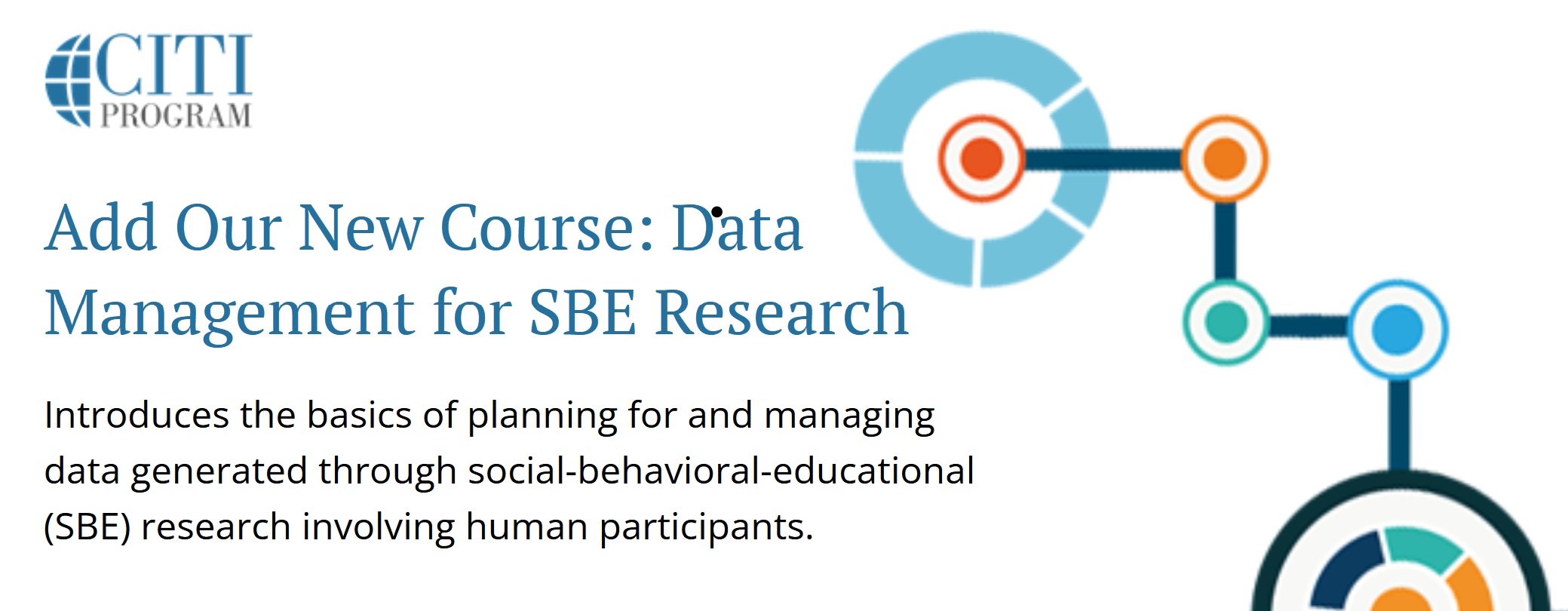DOI: https://doi.org/10.59350/5znft-x4j11
We’re pleased to announce that QDR's Diana Kapiszewski and Dessi Kirilova have created a new three-module course on “Data Management for Social-Behavioral-Educational (SBE) Research,” which was just released as a self-guided option via Collaborative Institutional Training Initiative (CITI Program).

Providing fresh insights on both practical and ethical issues related to managing data generated through human subjects research, the course aims to familiarize both researchers from the social, behavioral, education and public health disciplines and IRB personnel with key aspects of data management. Rich in real-world examples that explain and illustrate core concepts, the course is intended to help researchers develop and enhance their research data management skills, so they can both use the data that they generate productively for their own work, and potentially enable other scholars to do the same as secondary users of the same data.
The course authors present strategies to plan for data management, including the critical step of developing a data management plan while designing a new study. Further, they consider how to gauge and assess when data may be sensitive and how to apply additional protections and safeguards if needed. The recommendations are translated into concrete steps that researchers should take to manage all their data effectively as they collect them, including data capture and documentation, data storage, and creating backups of the data. For IRB personnel, the authors distill the advice to researchers in a way that should enable a productive dialog that leads to optimal choices regarding data security and safety during the course of a study.
The new course will be followed by a second one, which extends this knowledge to the post-project phase of data sharing in ways that comply with NSF, NIH, and other funder or journal requirements, as well as legal and ethical expectations.